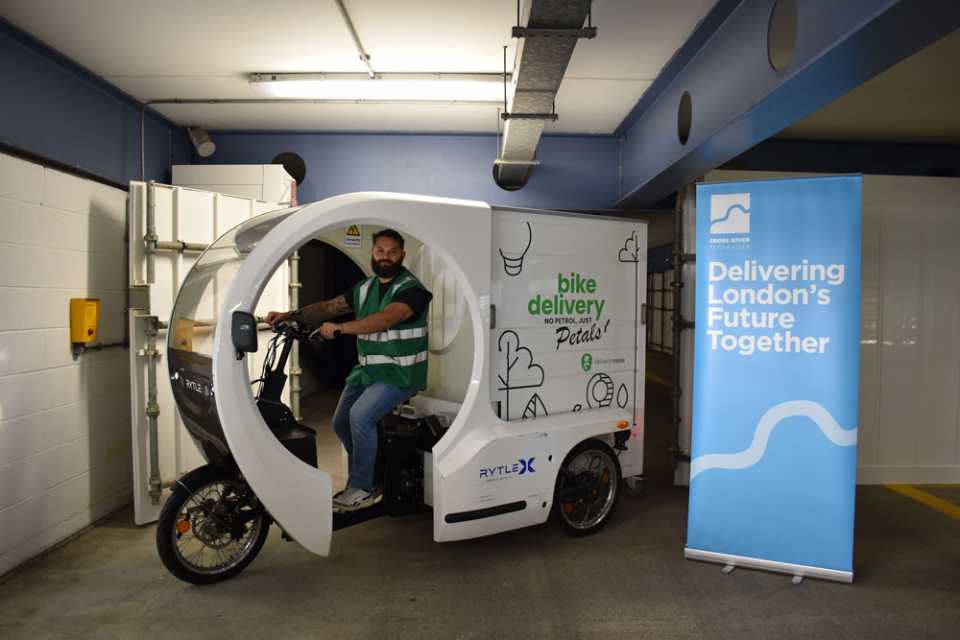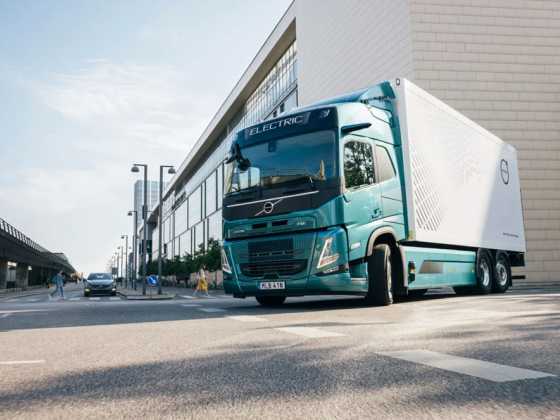Micro logistics hub trial starts in London Borough of Wandsworth

The Cross River Partnership (CRP) has launched its latest six-month micro logistics hub trial in the Southside Shopping Centre Car Park in London Borough of Wandsworth, which will run for six months, until February 2024.
Funded by Defra, in partnership with the London Borough of Wandsworth, this CRP trial is supporting low-emission last-mile deliveries in the London Borough of Wandsworth and surrounding areas. This initiative is funded by CRP’s Clean Air Logistics for London and Smarter Greener Logistics programmes. Deliveries are also operating to the London Boroughs of Richmond upon Thames and Merton across the tri-borough area. This includes some of Wandsworth’s latest developments, such as new residential and business locations in Battersea Power Station and Nine Elms.
The hub has been created by sustainable logistics experts Decarbon Logistics Solutions in partnership with APCOA Parking (UK) Limited at Southside Car Park.
Following a competitive tender process sustainable final-mile courier Delivery Mates have been selected to operate daily from the 900 sq ft hub, extending their same day, next day and on demand parcel delivery service to residents and businesses. Parcels will be received into the hub from an electric delivery vehicle before being sorted into delivery routes, loaded and distributed by electric cargo bikes in the surrounding area over the next six months.
It is expected that this micro logistics hub trial in Wandsworth will achieve similar emissions savings as CRP’s previous micro logistics hub trial in Pimlico. After only four months of operations, the e-cargo bikes operating from the Pimlico hub travelled 9,377 km, which led to a total emissions reduction of 1,613 kg of CO2, 6,388 g of NOx, and 105 g of PM2.5 when compared to polluting van deliveries.
Micro logistics hubs are small, secure spaces that couriers and operators can use to receive, sort, and send deliveries in central locations, ideally by cargo bike or walking porters, to support zero-emission last-mile deliveries in the borough. The hub acts as a crucial step for consolidating deliveries, bulk-buying, and a place to sort deliveries, which can reduce the number of polluting vehicle trips and therefore congestion and vehicle emissions.



